A resilience matrix approach for measuring and mitigating disaster-induced population displacement
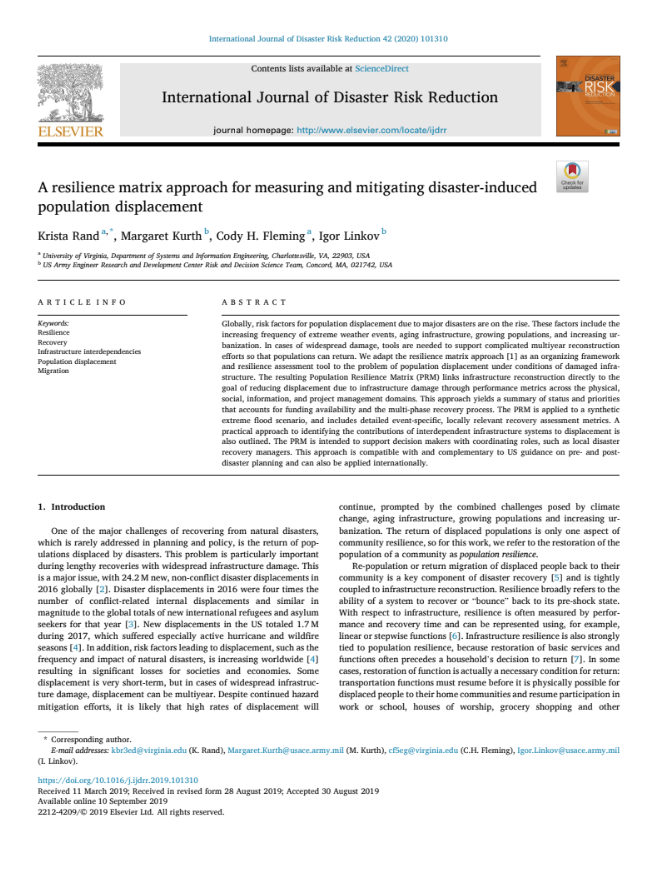
Authors: Krista Rand, Margaret Kurth, Cody H. Fleming, Igor Linkov Publisher: Elsevier Ltd
A review of hydro-meteorological hazard, vulnerability, and risk assessment frameworks and indicators in the context of nature-based solutions
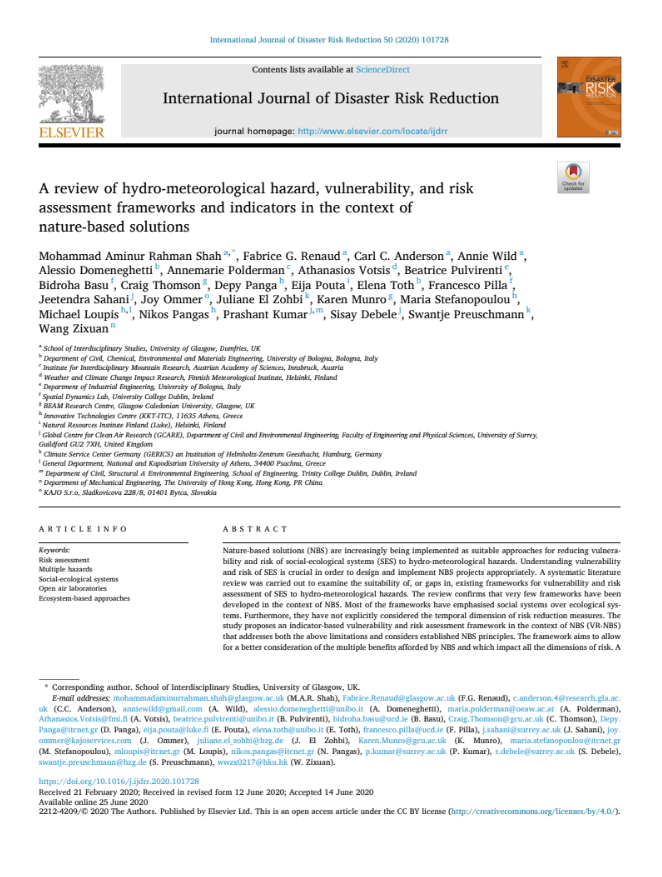
Authors: Mohammad Aminur Rahman Shah, Fabrice G. Renaud a, Carl C. Anderson, Annie Wild, Alessio Domeneghetti, Annemarie Polderman, Athanasios Votsis, Beatrice Pulvirenti e, Bidroha Basu, Craig Thomson, Depy Panga, Eija Pouta, Elena Toth, Francesco Pilla, Jeetendra Sahani, Joy Ommer, Juliane El Zohbi, Karen Munro, Maria Stefanopoulou, Michael Loupis, Nikos Pangas, Prashant Kumarj, Sisay Debele, Swantje […]
The Role of Knowledge in Disaster Risk Reduction

Author: Juergen Weichselgartner, Patrick Pigeon Publications: Springer
Benefits, barriers, and incentives for improved resilience to disruption in university teaching
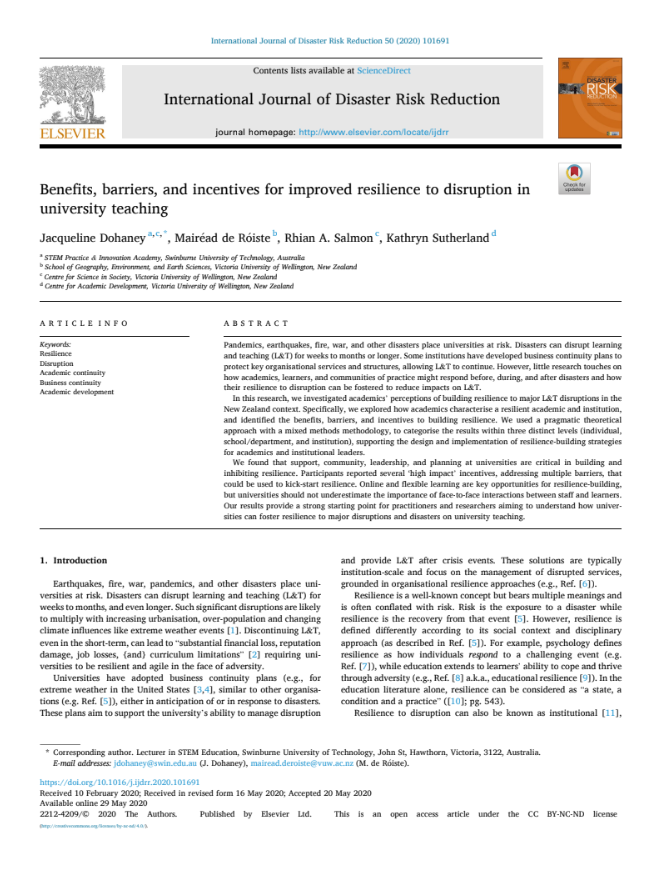
Author: Jacqueline Dohaney, Mairead de Roisteb, Rhian A. Salmon, Kathryn Sutherland Publisher: Elsevier Ltd
Beyond Adaptation: Resilience for Business in Light of Climate Change and Weather Extremes
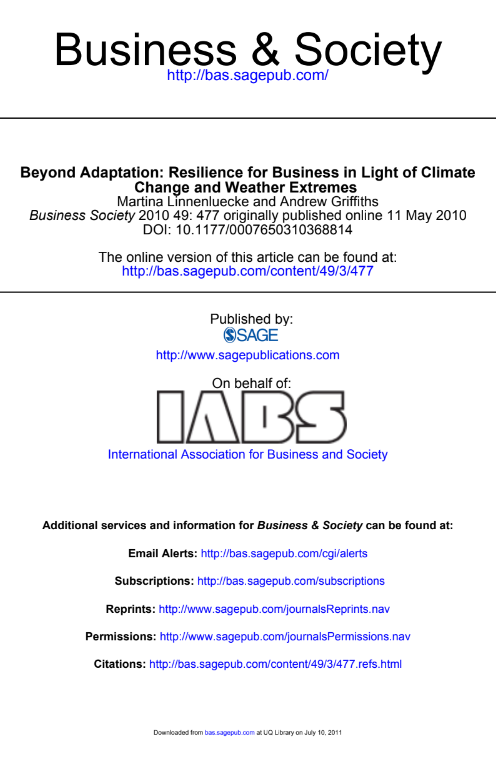
Authors: Martina Linnenluecke and Andrew Griffiths Publisher: SAGE
BIM-based Virtual Permitting Framework (VPF) for post-disaster recovery and rebuilding in the state of Florida
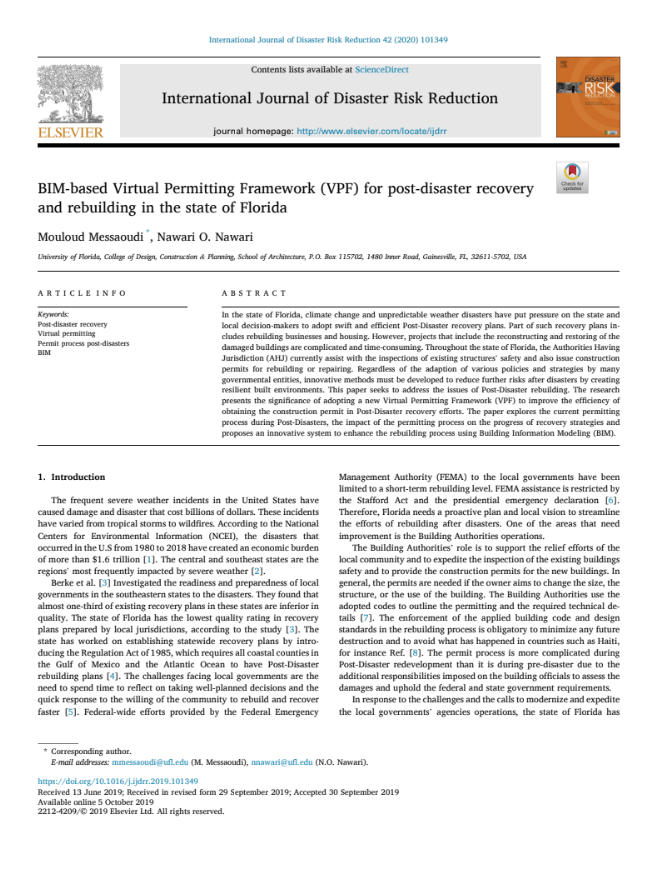
Authors: Mouloud Messaoudi , Nawari O. Nawari Publisher: Elsevier Ltd
Building Private Sector Resilience: Directions After the 2015 Sendai Framework
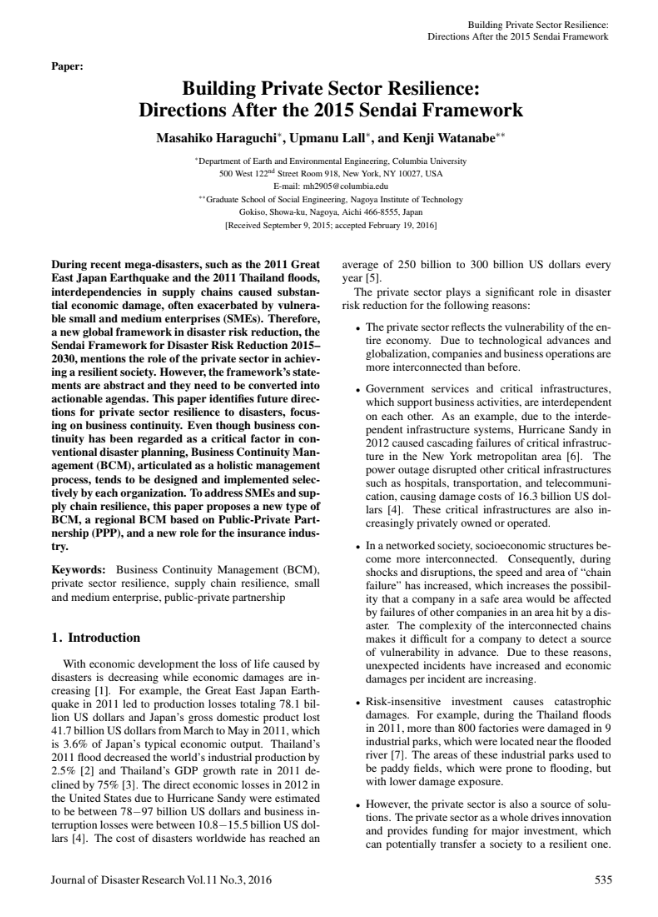
Authors: Masahiko Haraguchi, Upmanu Lall and Kenji Watanabe
Citizen Response to Disasters: a Survey of Literature and Some Practical Implications1
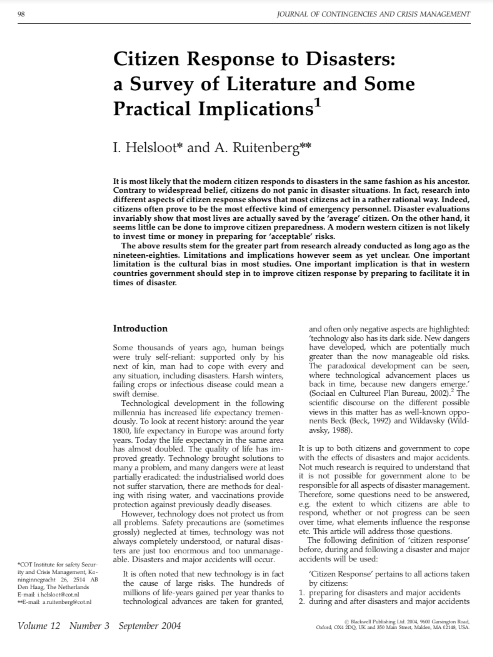
Authors: Helslootn and A. Ruitenberg Publisher: Blackwell Publishing Ltd
Climate change education and research: possibilities and potentials versus problems and perils?
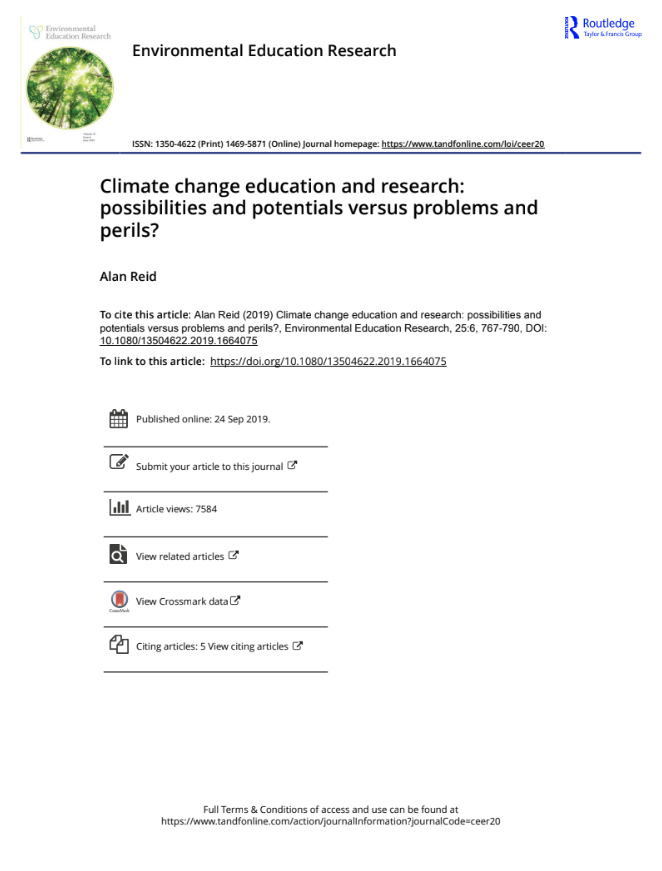
Author: Alan Reid Publisher: Taylor & Francis Group
Climate change – the challenge of translating scientific knowledge into action
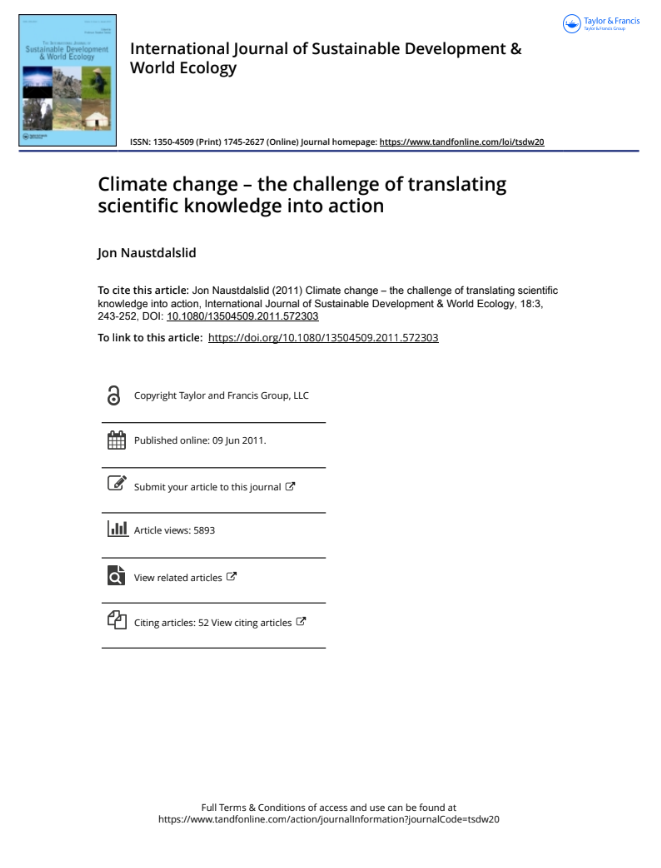
Author: Jon Naustdalslid Publisher: Taylor and Francis Group, LLC
